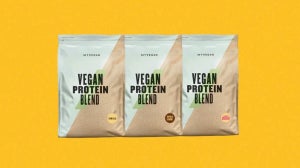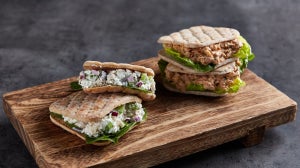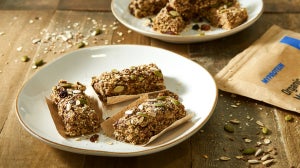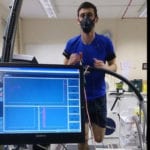
Written by Nathan Travell
Chocolate & The Athlete
Chocolate is a bit of a controversial food group – many people erroneously believe that it is the cause of fat gain, and immediately cut it out come early January, but what if I told you that many high performing athletes actually gain massive benefits from it? You don’t need to be at the top of your game to reap these benefits either, just intelligently use it as part of your diet.

Healthy Micronutrients
Chocolate is very high in macronutrients (carbohydrate and fat) which is what gives it such a high caloric value (this is covered later). In addition to this, chocolate is also high in fibre (about 11grams per 100g) as well as having great amounts of minerals -67% RDA Iron/ 58% RDA Magnesium/ 89% Copper /98% RDA Manganese.
In fact, it is thought that the high levels of Magnesium may be the cause of chocolate cravings[ii] (modern diets tend to be poor in nutrients). Though there are nutrients in chocolate that can cause negative health effects if eaten to excess (I’m talking about the sugar/saturated fat content), if eaten moderately chocolate can provide a boost to certain ‘good’ nutrients that you may be lacking in.

Recovery
As well as the aforementioned minerals, chocolate (especially dark chocolate) is rich in flavonoids. These act as antioxidants – which counter the toxic effects of oxygen radicals that are produced in higher levels during exercise![iii] In addition, there is another exercise related benefit from chocolate – it was found that flavonol (a subclass of flavonoids) increases nitrogen oxide availability in blood vessel tissues[iv]. Nitrogen oxide causes blood vessels to relax[v], which improves blood flow. This can lead to increased nutrient availability in your muscles – allowing you to workout harder!
There is also the fact that high levels of calories, relative to your expenditure, can assist in recovery by allowing your body to quickly resynthesize any lost muscle glycogen post workout as well as covering the high metabolic cost of muscle tissue repair.
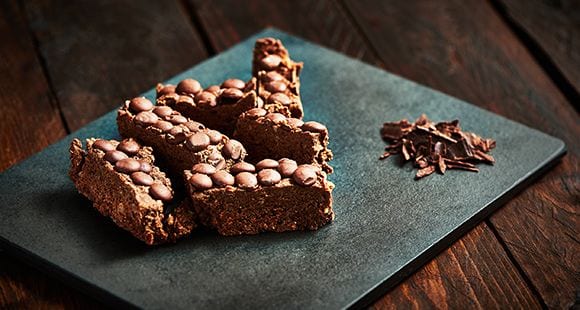
Calories
Athletes may need high-calorie diets to power their training – there have been rumours that Michael Phelps eats around 10,000 kcals per day when his training is at his most extreme. Do you really think that all these calories are “clean”? By using chocolate tactically, an athlete can easily get in the calories they need to perform. By tactically I mean, do not eat around training – the fat content is slow to digest and may cause issues.
Chocolate may also assist in growing muscle tissue – it is high calorie and therefore can help a struggling eater to top off their calories so that they are in a caloric surplus. Again, this needs to be used intelligently - account for the calories (typically muscle building ranges are around 300-500kcals surplus to what you burn off daily).
Conclusion
So long as the high calories, sugar and fat content are accounted for in your diet (as in, the rest of your diet needs to be relatively lower in calories, sugar and fat in order to avoid negative health implications), chocolate can help the athlete by reducing stress, offering some subtle health benefits and allowing them to easily ingest higher amounts of calories.
[i] Martin F et al., (2009) Metabolic effects of dark chocolate consumption on energy, gut microbiota, and stress-related metabolism in free-living subjects. Journal of Proteome Research, (pages unknown)
[ii] Bruinsma K., et al (1999) Chocolate: Food or Drug, Journal of the American Dietetic Association, pp 1249- 1256
[iii] Serafini M., et al (2003) Plasma Antioxidants from Chocolate, Nature, pp1013
[iv] Fisher N., (2003) Flavonol-Rich Cocoa Induces Endothelial Function and Increases Plasma Epicatechin, Journal of Hypertension, pp 2281-2286
[v] Karim M., et al (2000) Effects of cocoa extracts on endothelium-dependent relaxation. Journal of Nutrition. (pages unknown)
Our articles should be used for informational and educational purposes only and are not intended to be taken as medical advice. If you're concerned, consult a health professional before taking dietary supplements or introducing any major changes to your diet.

Casey Walker is an experienced sports nutrition new product development technologist. He holds a Bachelor of Science in Sports and Exercise Science and a Master of Science in Sports Sciences and Physiology.
Casey’s scientific research area of expertise lies in the effects of dietary nitrates on sprint performance and exercise-induced muscle damage. He has also worked as a sports scientist for a medal-winning Paralympic track cyclist, with a goal of qualifying for the Rio 2016 Paralympics.
Find out more about Casey’s experience here.
In his spare time, Casey is a keen middle-distance runner with an interest in triathlon. He’s always looking out for the latest blends and supplements to improve his half-marathon time and recovery.


